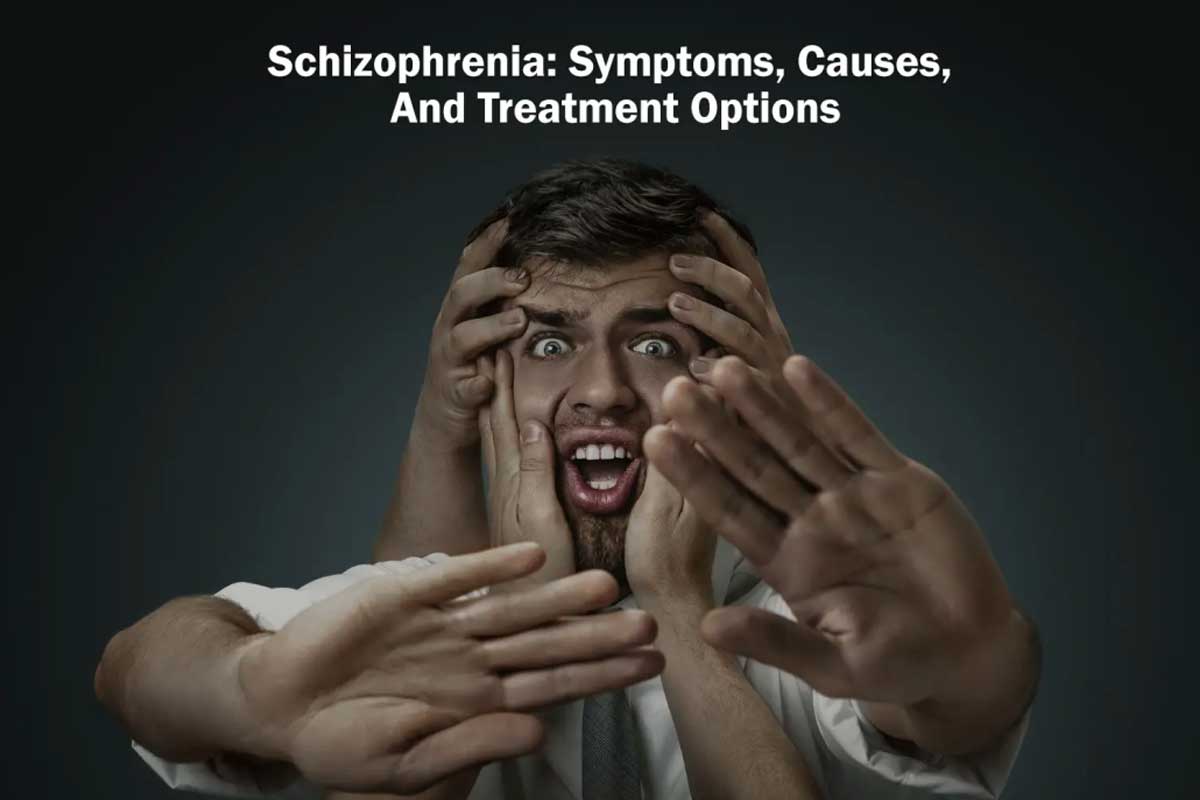

Schizophrenia is a chronic and severe mental disorder characterized by disturbances in thought, perception, emotions, and behavior. It affects approximately 20 million people worldwide and typically emerges in late adolescence or early adulthood. Schizophrenia can have a profound impact on individuals’ lives, as well as their families and communities. In this guide, we’ll explore the symptoms, causes, and treatment options for schizophrenia, as well as strategies for managing this complex disorder.
Symptoms of Schizophrenia: Schizophrenia is characterized by a range of symptoms that can be categorized into three main clusters: positive symptoms, negative symptoms, and cognitive symptoms.
1.Positive Symptoms: These symptoms involve distortions of normal functioning and include hallucinations (perceiving things that aren’t there), delusions (false beliefs), disorganized thinking (incoherent speech or thought patterns), and grossly disorganized or abnormal motor behavior.
2.Negative Symptoms: Negative symptoms involve deficits in normal functioning and include diminished emotional expression (flat affect), reduced motivation and pleasure (avolition), social withdrawal, and difficulty initiating and sustaining activities (anhedonia).
3.Cognitive Symptoms: Cognitive symptoms involve impairments in cognitive processes such as attention, memory, and executive functioning. Individuals with schizophrenia may experience difficulties with attention, concentration, working memory, and problem-solving.
Causes of Schizophrenia: The exact cause of schizophrenia is not fully understood, but it is believed to be influenced by a combination of genetic, biological, environmental, and psychological factors.
1.Genetic Factors: Schizophrenia has a strong genetic component, with individuals who have a first-degree relative (parent or sibling) with schizophrenia being at higher risk of developing the disorder.
2.Brain Structure and Function: Abnormalities in brain structure and function, including alterations in neurotransmitter systems (such as dopamine and glutamate), brain connectivity, and brain volume, have been implicated in schizophrenia.
3.Prenatal and Perinatal Factors: Exposure to certain prenatal and perinatal factors, such as maternal infections during pregnancy, maternal stress, birth complications, and prenatal exposure to toxins or drugs, may increase the risk of developing schizophrenia.
4.Environmental Factors: Environmental factors such as childhood trauma, urban upbringing, social isolation, substance abuse, and stress have been associated with an increased risk of schizophrenia.
Treatment Options for Schizophrenia: Schizophrenia is a complex and chronic disorder that requires long-term treatment and management. Treatment typically involves a combination of medication, psychotherapy, and psychosocial interventions.
1.Antipsychotic Medications: Antipsychotic medications are the cornerstone of treatment for schizophrenia and are effective in reducing the positive symptoms of the disorder, such as hallucinations and delusions. First-generation (typical) and second-generation (atypical) antipsychotics are commonly prescribed.
2.Psychotherapy: Psychotherapy, such as cognitive-behavioral therapy (CBT) and supportive therapy, can help individuals with schizophrenia manage symptoms, improve insight and coping skills, and address social and occupational functioning.
3.Psychosocial Interventions: Psychosocial interventions, such as individual therapy, group therapy, family therapy, vocational rehabilitation, and supported employment programs, are important components of schizophrenia treatment and can help individuals with schizophrenia improve their quality of life, social functioning, and independence.
4.Hospitalization: In severe cases or during acute exacerbations of symptoms, hospitalization may be necessary to ensure safety, stabilize symptoms, and provide intensive treatment and support.
Conclusion: Schizophrenia is a complex and challenging disorder that requires comprehensive and individualized treatment. With early intervention, appropriate medication, psychotherapy, and psychosocial support, many individuals with schizophrenia can manage their symptoms effectively and lead fulfilling lives. It’s essential for individuals with schizophrenia and their families to work closely with mental health professionals to develop a treatment plan that addresses their unique needs and goals. By raising awareness, reducing stigma, and advocating for access to quality mental health care, we can support individuals with schizophrenia on their journey to recovery and wellness.
